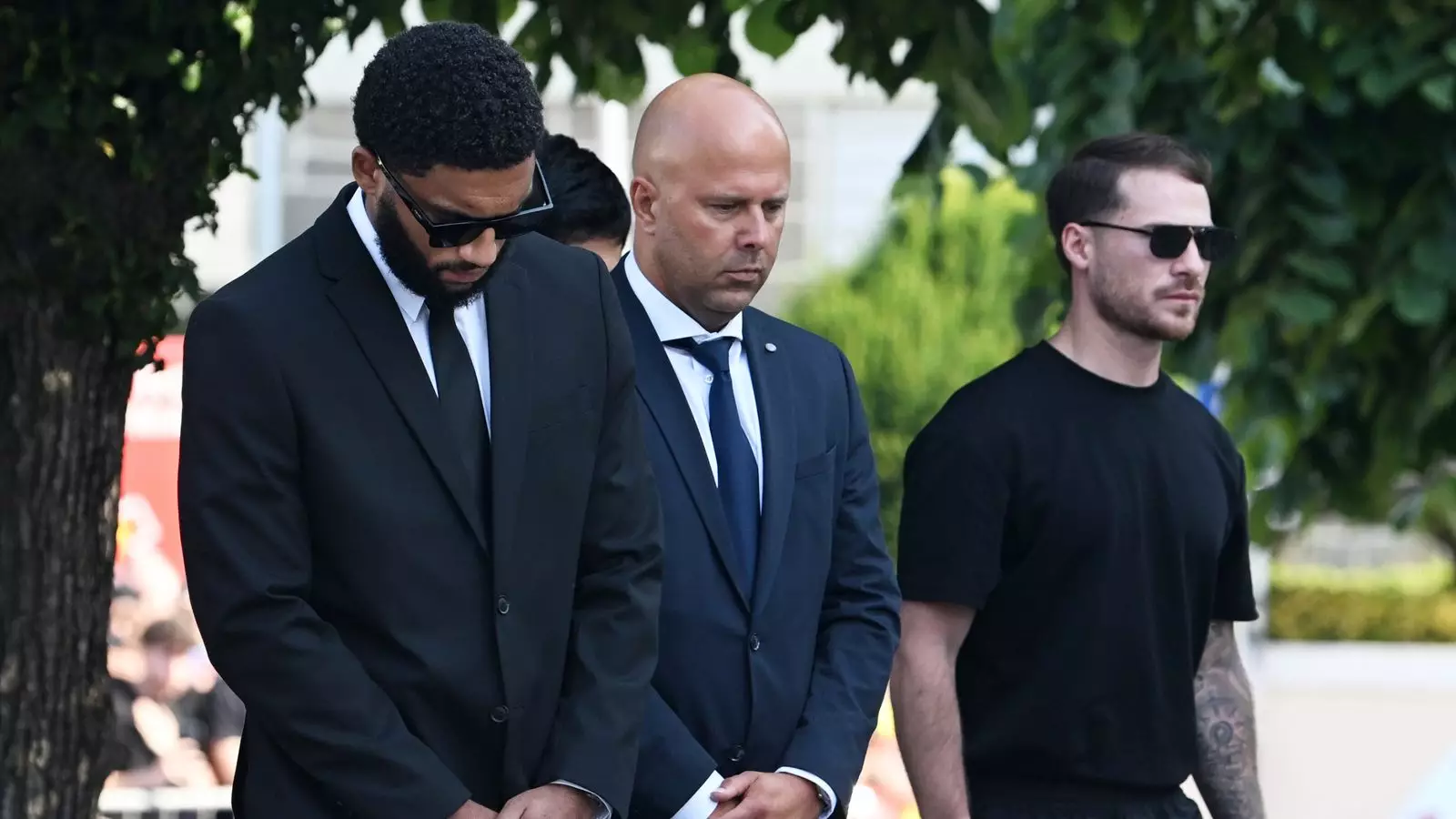The recent funeral of Diogo Jota and his brother Andre Silva in Portugal starkly reveals the profound impact of personal tragedy on both the tight-knit football community and wider society. In a display of collective mourning, players from Liverpool and various national teams united in grief, highlighting how sports figures are not just entertainers but genuine members of global families. The emotional scene outside the Igreja Matriz de Gondomar underscores the enduring bonds forged through shared passions, struggles, and victories—bonds that are ultimately torn apart by the cruel hand of fate. The outpouring of grief, with wreaths and heartfelt messages, reminds us that behind every athlete’s polished exterior lies a deeply human experience filled with love, loss, and vulnerability.
This tragedy also exposes the delicate fragility of life—how quickly everything can change in an instant. Jota, a rising star with a loving wife and three young children, and his brother Andre, a promising footballer, fall victim to a sudden and devastating accident. Their deaths shake the foundations of their families, teams, and supporters, forcing us to confront the uncomfortable truth that life’s most precious moments can be snatched away unexpectedly. Their story is a stark call for us all to cherish our loved ones more profoundly, to never take a single moment for granted, and to recognize the fragile nature of our existence. In mourning, we are reminded how interconnected human lives are, and that tragedy spares no one, regardless of social status, fame, or accomplishments.
From Fame to Humanity: The Role of Athletes in Embracing Shared Humanity
In the aftermath of this heartbreaking event, the actions of the Liverpool players and international colleagues reveal a compelling narrative about sportsmanship rooted in humanity rather than just competition. The attendance of esteemed figures such as Virgil Van Dijk, Roberto Firmino, and Ruben Neves at the funeral emphasizes that footballers are more than athletes—they are integral parts of a global family that transcends borders and jerseys. Their presence, alongside personal messages and tributes, signals an acknowledgment that empathy and compassion are fundamental virtues that define us beyond the playing field.
Moreover, the response from clubs and fans demonstrates that sport has the power to unify in times of despair. The lowered flags at Anfield, the gesture of flowers, and the postponement of pre-season preparations are tangible acts of solidarity. These gestures rectify the often-criticized commercial and entertainment focus of modern football, showing instead a community that values human connection above all. This shared grief also challenges the sanitized narratives often present in sports media, reminding us that behind every victory and record, players cope with personal struggles just like anyone else.
This tragic incident should serve as a wake-up call, urging sports organizations and society to prioritize mental health and resilience, recognizing the mental toll that fame and pressure can impose. Athletes should be seen not merely as commodities but as human beings whose lives are as sacred and complex as anyone’s. Their capacity to demonstrate vulnerability and solidarity during times of mourning highlights the potential for sports to foster empathy, social cohesion, and healing, reinforcing that our shared humanity is what truly binds us.
Lessons for Society: Embracing Compassion in a Divided World
The death of Jota and his brother exposes the broader societal failure to fully recognize and support the emotional needs of individuals, even those who appear successful publicly. While the world celebrates athletic achievement, it often neglects the profound emotional scars that tragedy leaves behind. The outpouring of love and grief offers an opportunity to reflect on our values: Do we prioritize compassion and community, or are we too consumed with individual success and superficial accolades?
This tragedy should inspire us to foster more compassionate communities that support mental health, grief, and resilience openly. It highlights that no amount of fame or wealth can shield us from life’s unpredictable hardships. Society must become more attentive to subtle signs of suffering and cultivate a culture where vulnerability is accepted and supported, especially for those who are constantly in the public eye.
Furthermore, the incident urges us to rethink our collective priorities, emphasizing that human life and relationships outweigh material success or fleeting fame. Our response to such tragedies can either deepen divisions or bridge them through shared grief and understanding. By choosing compassion over indifference, we can create a more inclusive and resilient society—one that values the well-being of every individual, regardless of social stature. Jota and Andre’s death is a stark reminder that life is unpredictable but that our capacity for empathy and solidarity can help us endure even the darkest moments.

